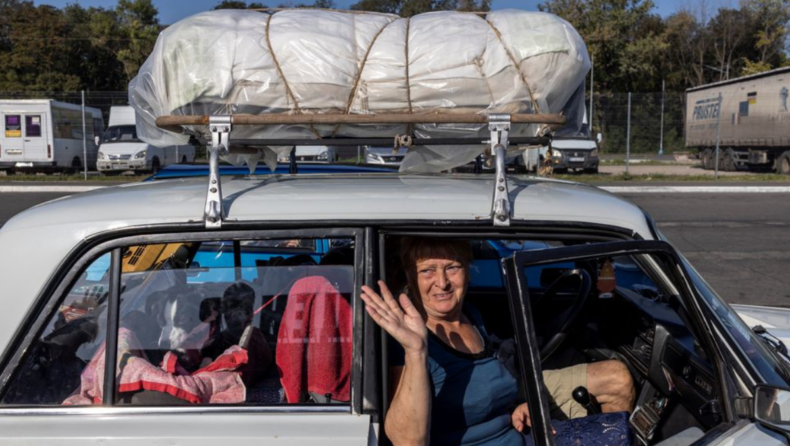Despite worries of a radioactive leak from fighting, thousands of people leaving Russia-controlled regions of south Ukraine are gathering in a city close to Europe’s largest nuclear reactor. Many people saw the shelling in their hometowns as a more immediate threat.
For some people Reuters talked to on Monday, the threat of a nuclear catastrophe appeared remote even in a nation still haunted by the 1986 Chernobyl tragedy. Since shortly after the invasion on February 24, they have been fleeing areas of the south controlled by Russia and being bombarded by rockets as Ukraine plans a counteroffensive.
“We’re not worried about that now. The rockets overhead are more dangerous,” When questioned about the danger of radiation, Tatiana Pidlesina, 27, a resident of Kherson, said.
Ukraine has been warning locals to flee the region for weeks and now on Monday declared the commencement of a long-awaited counteroffensive.
According to the director of the organisation, a team from the U.N. nuclear watchdog was on its way to the Zaporizhzhia nuclear power plant on Monday as tensions between Russia and Ukraine over shelling in the area increased worries about a radiation disaster.
Authorities in the same-named Ukrainian-controlled city, 35 miles (56 km) to the northeast, have distributed iodine pills and instructed locals on how to utilise them in the event of a radioactive release as a result of the fighting near the facility.
Up to 2,000 individuals, largely from southern Russian-occupied regions like Kherson and Mariupol, were arriving there every day, according to Olexandr Noraiev, 34, a volunteer at a centre in the city processing the fleeing families.
In order to complete her studies in safety, Viktoriya Markova, 46, left her home on August 27 with her mother, sister, and relatives, as well as a 16-year-old student. She was an English teacher in a tiny village close to Kherson.
“I want her to finish school … and study only in a Ukrainian school, not a Russian school,” stated Markova.
When questioned about the new worries of a radioactive leak in the Zaporizhzhia area, she responded, “I couldn’t live in the place where I was,”













